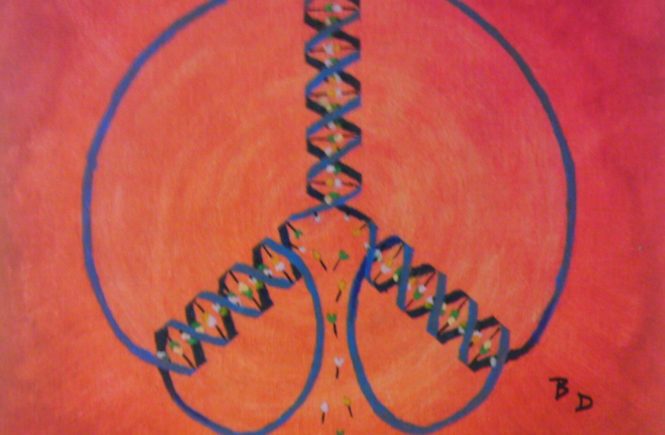An understanding of how our genes may be tied to our political choices and social bonds could help lessen our partisan discord- if we let it.
Conflict seems to be a part of the human spirit. A good story needs conflict, otherwise we’re apt to find it dull. A story about making a sandwich is not going to be very interesting, even if it looks like it would be a good sandwich. Ingredients will be laid out, and a sandwich will be made. There is no suspense, no tension. Sandwich aficionados will know this to be not completely true, as there is a certain unpredictability, even magic, in the creation of a good sandwich, and the hoped for outcome cannot be completely assured. Nonetheless it’s telling that “making a sandwich” is not a major fictional genre. However if I go to the kitchen to make that sandwich, and I see my son is reaching for the last two pieces of bread, now it’s interesting (to me). Steel cage death match is assured, and a story worthy of a last a direct-to-DVD movie is born.
Even if a story doesn’t appear to have conflict, we’ll insert it in our reading, just to add interest. For example, one bestselling book which has lots of conflict throughout, starts out with a story that’s ostensibly conflict free. “In the beginning God created the heaven and the earth. And the earth was without form, and void; and darkness was upon the face of the deep.” It’s just a slice of life story- except before there was life- a simple portrayal of everyday events-except there was no day yet, that comes later. Nonetheless, I read conflict into this story. There is a tension between order and chaos, between something and nothing. It’s like a sandwich story, except with higher stakes. Whether or not Moses meant to have that in there, conflict exists.
Like conflict, depositing people into categories of ‘us vs them’ is not necessary for a good story, but it seems to help.
Another common story element is a clear delineation of who the good people in the story are, and who are the bad people. Although modern literature, outside of the oeuvre of Tom Clancy and ilk, may not support simplistic definitions of who is good vs bad, at least the depiction of “us” vs “them” is usually made clear. Even with anti-hero’s, like Holden Caulfield in the perennial high school assignment of Catcher in the Rye, or for the moderns among us, Deadpool, or Jayne in Firefly, it’s clear that these characters are “us”, they are on our team. Whoever they are angry at (or in the case of Jayne and Deadpool, about to kill) is “them”.
